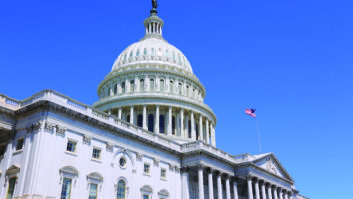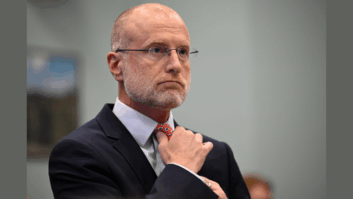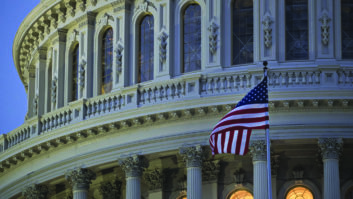
WASHINGTON — Sen. Joe Manchin (D-W. Va.) has put a hold on the renomination of FCC Commissioner Brendan Carr, but it is not over anything Carr has done.
According to The Hill, the hold stems from FCC chair Ajit Pai’s decision to pause a broadband subsidy program while the FCC investigates whether a major carrier or carriers did not provide accurate information on where broadband service was or wasn’t available.
Pai said last week that one or more “major” telecom carriers may have violated the FCC’s Mobility Fund Phase II reverse auction mapping rules and has suspended the process of handing out about $4.5 billion in subsidies over the next 10 years, pending an investigation he has just launched. The FCC built a coverage map from that data to determine where subsidies should go and whether they should not because they would be overbuilding existing service. If carriers overstate where high-speed broadband is already being provided, it reduces the areas that qualify for the subsidy, which is generally targeted at rural areas like Manchin’s state.
Manchin actually was granted status to challenge the FCC’s map as part of a process the FCC created to try and make sure the map was as accurate as possible, and if not find that out.
The senator agrees the info is not correct, but also apparently does not want the FCC to stop supplying funds to areas about which there is not debate while the FCC investigates. A Manchin spokesperson was unavailable for comment at press time.
In an interview for C-SPAN’s Communicators series, Pai was asked how frustrating it was for him to have to pause the program given his emphasis on closing the rural broadband divide. The chairman, who is from rural Kansas, said for him the issue was not just professional, but personal: “When I fly home to Kansas City, and I drive about three and a half hours to my home town, I can tell you once you get to the outer Kansas City suburbs you see the bars on your phone start to drop and soon thereafter you see there is no service at all for long stretches. I understand personally the cost of not having wireless coverage.”
He called it a matter of life and death in some circumstances. But he said the FCC needs to get the data right. The Mobility Phase II fund was part of the FCC’s move to direct wireless carrier subsidies where private capital was not already at work, and thus avoid overbuilding existing service.
The National Telecommunications & Information Administration launched the map seven years ago as part of its oversight of broadband stimulus money. The FCC took it over in 2015 when that oversight expired, but NTIA is getting the map back again.
The FCC’s Wireline Competition Bureau has called the map the best publicly available picture of broadband coverage, thanks in part to FCC collaboration with commercial cloud-based vendors. Pai at the time called it an incredible tool for policymakers — like Manchin — and Americans interested in the topic, and conceded that while it was a first step, it was “a pretty darn good first step.”
Manchin clearly did not agree: “The data I submitted yesterday proves what every West Virginian already knows to be true: There are too many areas throughout our state that still lack reliable broadband coverage.”
Carr is currently serving out the unexpired term of former chair Tom Wheeler, which expired in June. But he can continue to serve until the end of the next Congress, or early 2020. He was narrowly approved (14-13) by the Senate Commerce Committee last January for that full, five-year, term, but never got a full Senate vote due to another hold, again not due to him but to Democrats’ general disaffection with Republicans.
Carr and Democratic Commissioner Jessica Rosenworcel were confirmed back in August as part of a complicated, partisan, deal that led to a voice vote (“unanimous consent”) in which Senators approved Democrat Rosenworcel through 2020 but only allowed Republican Carr to hold office through June 2018 (completing Wheeler’s term).
Republican Senators on the Commerce Committee had sought to approve Carr simultaneously for the unexpired term plus for the ensuing term through 2023, but Democrats blocked that move.







